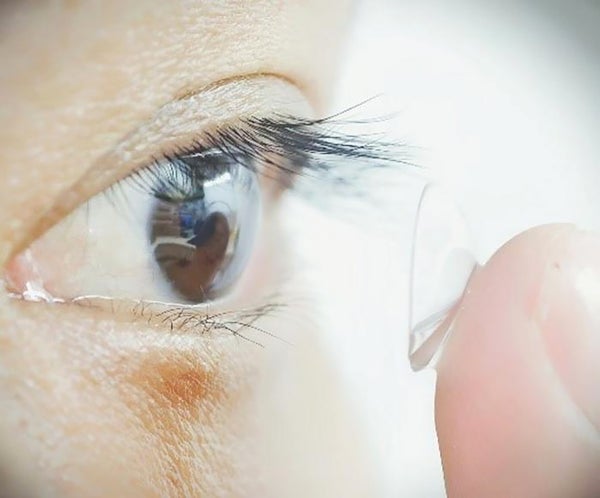Vital for Bone Health, Vitamin D May Also Slow Aging at the Cellular Level
The anti-aging supplement industry is valued at many billions of dollars, with North America offering the largest market worldwide. Through clever marketing, many such supplements have promised consumers everything from halting to reversing the aging process — often without clear scientific evidence to back it up.However, recent findings from a long-term randomized controlled study have put a widely used and potent supplement into the anti-aging spotlight: Vitamin D.A sub-study from the Vitamin D and Omega-3 Trial, published in The American Journal of Clinical Nutrition and led by researchers at Mass General Brigham and the Medical College of Georgia, has revealed that long-term Vitamin D supplementation may actually slow aging on a cellular level. This adds even more promise to Vitamin D’s already impressive list of health benefits.There's More to Vitamin D Roughly a quarter of Americans take Vitamin D supplements daily — and for good reason. While this fat-soluble vitamin is best known for maintaining bone health by helping regulate calcium and phosphorus, its role in the body extends far beyond that. Vitamin D also supports immune function, regulates inflammation, and influences cell growth to name a few.That said, getting enough Vitamin D naturally can be challenging. It’s found mainly in fatty animal products like fish, red meat, and eggs. Our skin can also synthesize it through sun exposure — which isn’t always a reliable source due to lifestyle, geography, or sunscreen use. This is why many people end up deficient.With the latest findings from the VITAL Trial, the benefits of adequate Vitamin D supplementation may now include not just stronger bones and better immunity but also support for healthy aging.Read More: What's the Difference Between Vitamin D2 and D3?Vitamin D Prevented Aging on Cellular Level“VITAL is the first large-scale and long-term randomized trial to show that vitamin D supplements protect telomeres and preserve telomere length,” said JoAnn Manson, principal investigator of VITAL and chief of the Division of Preventive Medicine at Brigham and Women’s Hospital in a press statement.Telomeres — repetitive DNA sequences at the ends of chromosomes — protect genetic material during cell division. As we age, telomeres naturally shorten, a process linked to increased risk of age-related diseases and general cellular aging.While earlier small-scale studies offered mixed results, the VITAL Telomere sub-study stands out due to its size and rigor. It followed 1,054 participants aged 50 and older over four years, comparing those who took 2,000 IU of Vitamin D3 dailywith those who took a placebo. Telomere length was measured at the start, at two years, and at four years.The results? Vitamin D3 supplementation significantly slowed telomere shortening — effectively preserving the equivalent of close to three years of cellular aging compared to the placebo group.Why Aging Research Matters“Our findings suggest that targeted vitamin D supplementation may be a promising strategy to counter a biological aging process, although further research is warranted,” said study’s first author Haidong Zhu, a molecular geneticist at the Medical College of Georgia in the news release.Aging research often gets lumped in with science fiction-like efforts to stop aging or live forever, but its real goal is far more grounded: to improve health across the lifespan. Instead of chasing immortality, scientists aim to extend the health span — the number of years people live free of chronic disease and disability.By uncovering interventions like Vitamin D that can support healthier aging, researchers hope to help more people enjoy a higher quality of life well into their later years, without resorting to expensive or unproven treatments.This article is not offering medical advice and should be used for informational purposes only.Article SourcesOur writers at Discovermagazine.com use peer-reviewed studies and high-quality sources for our articles, and our editors review for scientific accuracy and editorial standards. Review the sources used below for this article:Cleveland Clinic: Vitamin D DeficiencyNational Institutes of Health, Office of Dietary Supplements: Vitamin D Fact Sheet for Health ProfessionalsHaving worked as a biomedical research assistant in labs across three countries, Jenny excels at translating complex scientific concepts – ranging from medical breakthroughs and pharmacological discoveries to the latest in nutrition – into engaging, accessible content. Her interests extend to topics such as human evolution, psychology, and quirky animal stories. When she’s not immersed in a popular science book, you’ll find her catching waves or cruising around Vancouver Island on her longboard.
#vital #bone #health #vitamin #also
Vital for Bone Health, Vitamin D May Also Slow Aging at the Cellular Level
The anti-aging supplement industry is valued at many billions of dollars, with North America offering the largest market worldwide. Through clever marketing, many such supplements have promised consumers everything from halting to reversing the aging process — often without clear scientific evidence to back it up.However, recent findings from a long-term randomized controlled study have put a widely used and potent supplement into the anti-aging spotlight: Vitamin D.A sub-study from the Vitamin D and Omega-3 Trial, published in The American Journal of Clinical Nutrition and led by researchers at Mass General Brigham and the Medical College of Georgia, has revealed that long-term Vitamin D supplementation may actually slow aging on a cellular level. This adds even more promise to Vitamin D’s already impressive list of health benefits.There's More to Vitamin D Roughly a quarter of Americans take Vitamin D supplements daily — and for good reason. While this fat-soluble vitamin is best known for maintaining bone health by helping regulate calcium and phosphorus, its role in the body extends far beyond that. Vitamin D also supports immune function, regulates inflammation, and influences cell growth to name a few.That said, getting enough Vitamin D naturally can be challenging. It’s found mainly in fatty animal products like fish, red meat, and eggs. Our skin can also synthesize it through sun exposure — which isn’t always a reliable source due to lifestyle, geography, or sunscreen use. This is why many people end up deficient.With the latest findings from the VITAL Trial, the benefits of adequate Vitamin D supplementation may now include not just stronger bones and better immunity but also support for healthy aging.Read More: What's the Difference Between Vitamin D2 and D3?Vitamin D Prevented Aging on Cellular Level“VITAL is the first large-scale and long-term randomized trial to show that vitamin D supplements protect telomeres and preserve telomere length,” said JoAnn Manson, principal investigator of VITAL and chief of the Division of Preventive Medicine at Brigham and Women’s Hospital in a press statement.Telomeres — repetitive DNA sequences at the ends of chromosomes — protect genetic material during cell division. As we age, telomeres naturally shorten, a process linked to increased risk of age-related diseases and general cellular aging.While earlier small-scale studies offered mixed results, the VITAL Telomere sub-study stands out due to its size and rigor. It followed 1,054 participants aged 50 and older over four years, comparing those who took 2,000 IU of Vitamin D3 dailywith those who took a placebo. Telomere length was measured at the start, at two years, and at four years.The results? Vitamin D3 supplementation significantly slowed telomere shortening — effectively preserving the equivalent of close to three years of cellular aging compared to the placebo group.Why Aging Research Matters“Our findings suggest that targeted vitamin D supplementation may be a promising strategy to counter a biological aging process, although further research is warranted,” said study’s first author Haidong Zhu, a molecular geneticist at the Medical College of Georgia in the news release.Aging research often gets lumped in with science fiction-like efforts to stop aging or live forever, but its real goal is far more grounded: to improve health across the lifespan. Instead of chasing immortality, scientists aim to extend the health span — the number of years people live free of chronic disease and disability.By uncovering interventions like Vitamin D that can support healthier aging, researchers hope to help more people enjoy a higher quality of life well into their later years, without resorting to expensive or unproven treatments.This article is not offering medical advice and should be used for informational purposes only.Article SourcesOur writers at Discovermagazine.com use peer-reviewed studies and high-quality sources for our articles, and our editors review for scientific accuracy and editorial standards. Review the sources used below for this article:Cleveland Clinic: Vitamin D DeficiencyNational Institutes of Health, Office of Dietary Supplements: Vitamin D Fact Sheet for Health ProfessionalsHaving worked as a biomedical research assistant in labs across three countries, Jenny excels at translating complex scientific concepts – ranging from medical breakthroughs and pharmacological discoveries to the latest in nutrition – into engaging, accessible content. Her interests extend to topics such as human evolution, psychology, and quirky animal stories. When she’s not immersed in a popular science book, you’ll find her catching waves or cruising around Vancouver Island on her longboard.
#vital #bone #health #vitamin #also
·59 Ansichten










